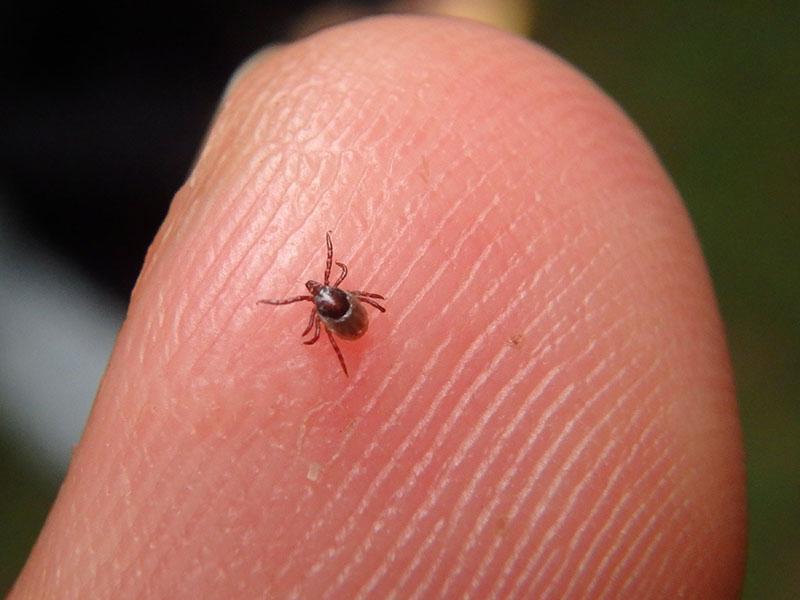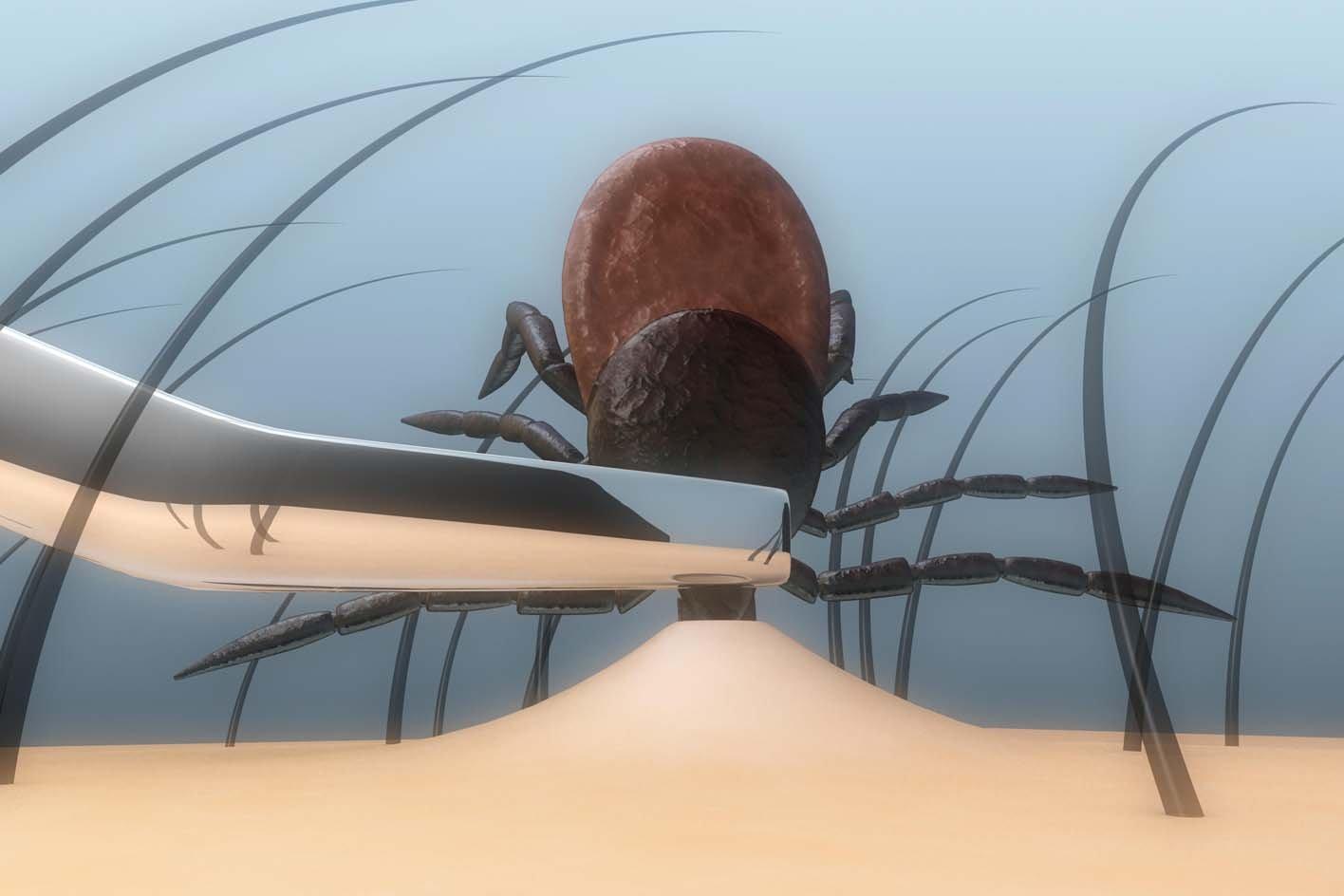Ticks are very small, spider-like creatures that feed on the blood of animals and people.
Their bites can cause very serious conditions if left untreated, including Lyme disease.
They can be found throughout the year, but their bites are most commonly reported during May and June.
Ticks live in many different outdoor environments but are particularly common in grassy and wooded areas, so you’re more at risk if hiking, cycling or camping.
They can also be found in gardens.
Simple steps to avoid tick bites include:
- walk on clearly defined paths
- avoid dense vegetation
- wear light-coloured clothing so ticks are easier to spot and brush off
- wear long trousers and long-sleeved tops
- apply an insect repellent such as DEET
- check your clothes and body regularly when you’re outdoors and brush off any ticks you find immediately
- carry out a tick check on your family and your pets when you’re back indoors.
Look out for anything as tiny as a freckle or speck of dirt.
They prefer warm areas such as the groin area, waist, armpits, behind the knee and along hairlines.
Ticks can be removed safely by yourself or ask for help from others if needed.
Remove the tick as soon as you can, either using a tick removing device or fine-tipped tweezers.
Fine-tipped tweezers are different to regular tweezers that might be used to remove eyebrow hair.
They are very narrow and pointed at the tip and ensure that ticks are not squashed during removal.
Grab the tick as close to the skin as possible and pull upwards.
Clean the area with soap and water afterwards.
Keep an eye on the bite area for a few weeks in case of any changes.
If you see a spreading bullseye rash developing or become unwell with flu-like symptoms or a headache, contact your GP or NHS 111 immediately and tell them you’ve been bitten by a tick.


